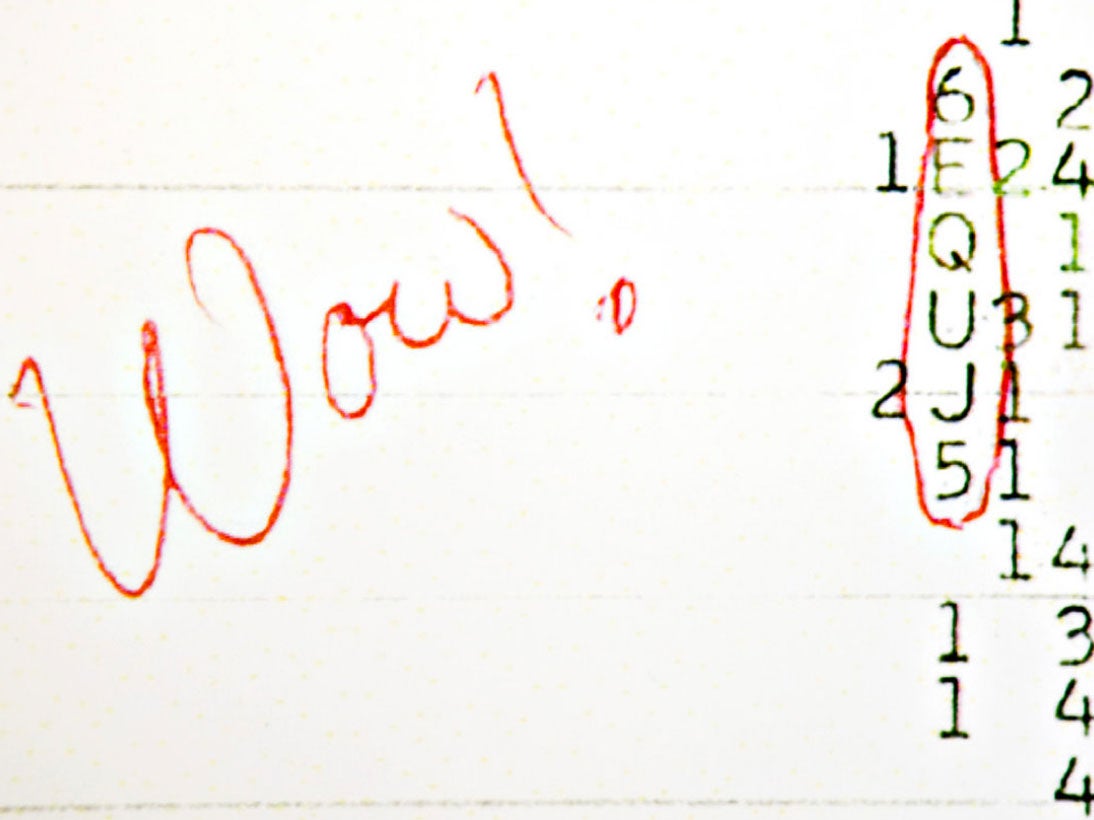'Wow!' signal explained: Astronomer to lay out true origins of mysterious 'alien’ transmission
The 'Wow!' signal has perplexed scientists for decades - but an explanation could be close

An American astronomer could be close to discovering the origins of a mysterious space signal which some conspiracists believe came from aliens.
The so-called 'Wow!' signal is the name given to a powerful blast of radio waves which was recorded by astronomer Jerry R. Ehman in August 1977.
While monitoring data from Ohio State University's 'Big Ear' radio telescope, Ehman came across an exceptionally strong radio signal, which lasted solidly for 72 seconds.
Drawing attention to the mysterious transmission on a printout, Ehman circled the signal and jotted down 'Wow!' next to it. Since then, it's become one of the most well-know space signals ever received.
The 'Wow!' signal has never been heard since, and its origins are still unknown. It appears to have come from an area near the M55 star cluster in the Sagittarius constellation, and some alien enthusiasts believe its strength and clarity mean it came from another intelligent species.
However, this kind of theory is exactly what Professor Antonio Paris, from Florida's St. Petersburg College, is trying to disprove.
In a previous job, Paris was an analyst for the US Department of Defence, and he's hoping to use this investigative background to dig into the true origins of the signal.
Speaking to The Guardian, he said: "I approached the 'Wow!' signal as if I'm going back to the crime scene."
"It's a cold case, so I went to various [astronomical] databases to find culprits or suspects that were at this crime scene at the time."
Rather than being an attempt at contact by an alien civilisation, Paris believes the signal comes from two recently-discovered comets, which were near the signal's suspected place of origin when it was picked up.
According to the theory, the giant clouds of hydrogen which surround the comets are responsible for the signal. It's a compelling explanation, especially since the radio frequency hydrogen naturally emits is 1420 MHz, the same frequency as the 'Wow!' signal.
The two comets will pass by the vicinity of the signal once again in the near future, and Paris wants to monitor them to see if they produce it again. In order to prove his theory, he'll need a radio telescope, and has set up a GoFundMe page in order to raise the money.
His target is $16,000 and he's already raised almost $14,000 in a month, so an explanation is looking promising.
One of the comets will pass through the system in January 2017, while the other will arrive a year later - so we may not have to wait for long to see if the 'Wow!' signal is just a cosmic anomaly, rather than a deliberate transmission.
Join our commenting forum
Join thought-provoking conversations, follow other Independent readers and see their replies
28Comments